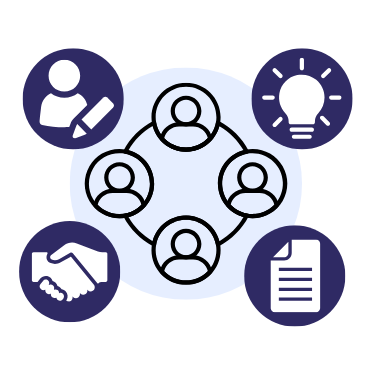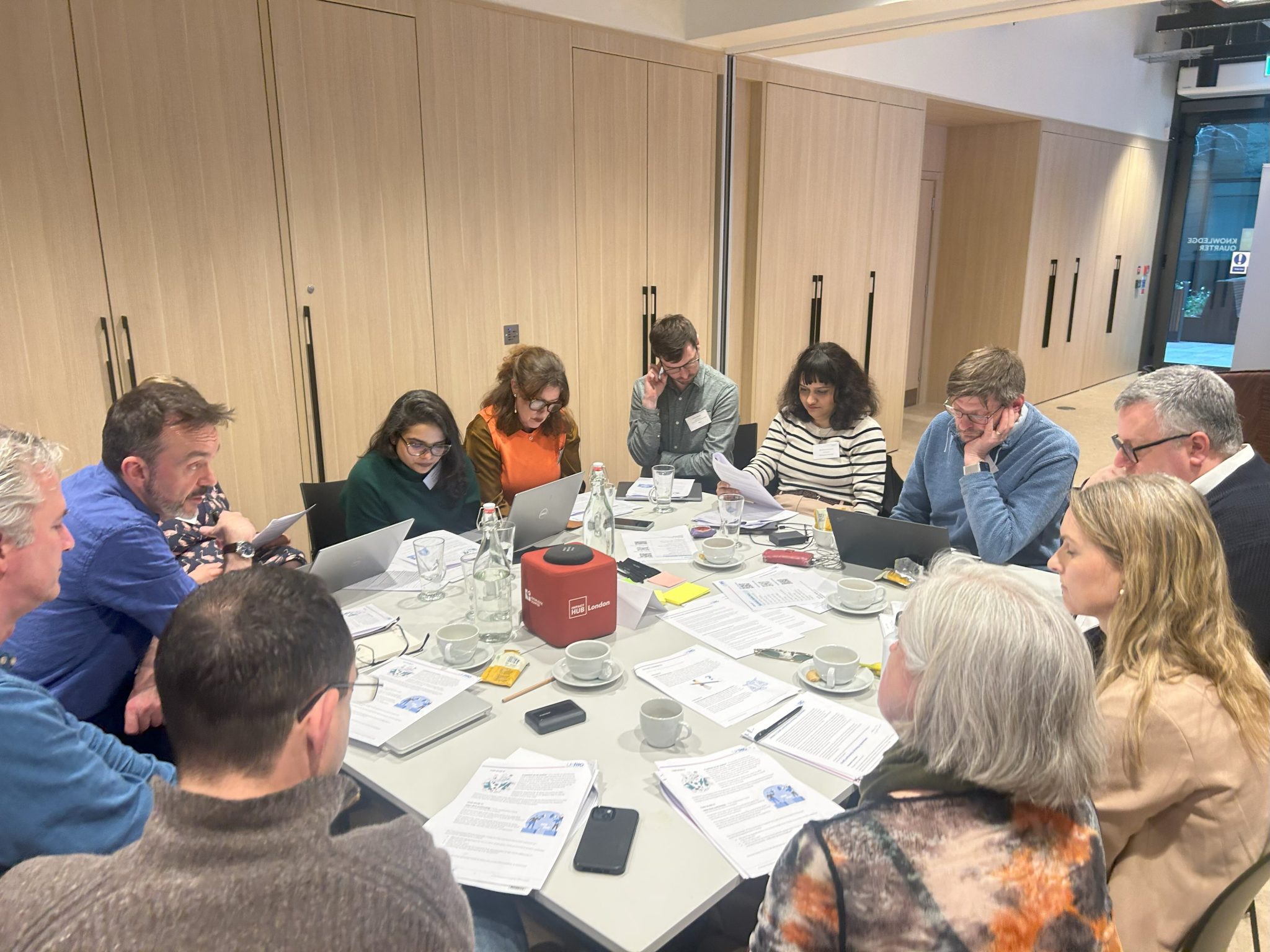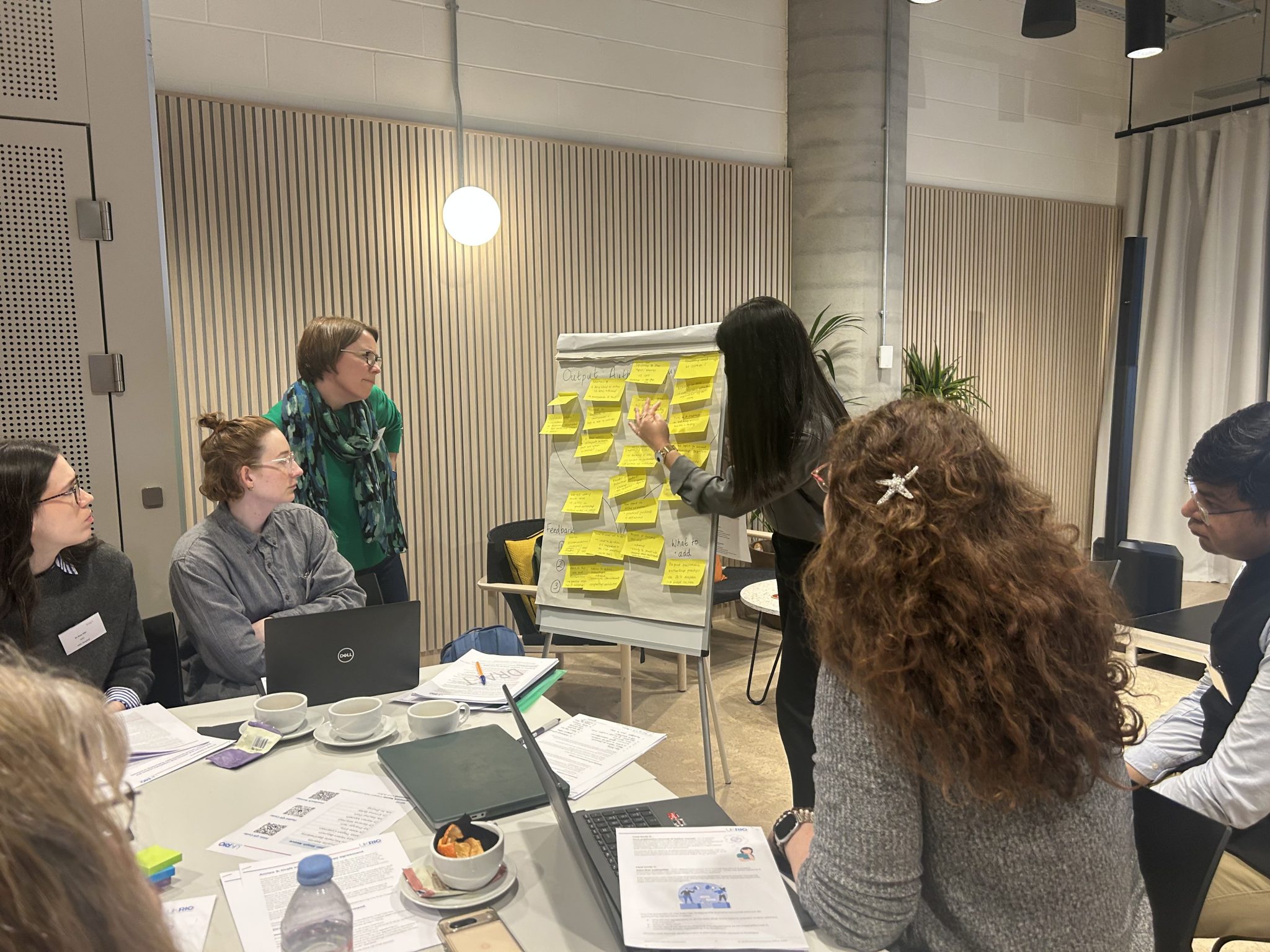Workshops report

Supporting collaborative thinking and progress on discussing authorship disputes
Workshops summary of proceedings
As part of Supporting collaborative thinking and progress on discussing authorship disputes – a peer-to-peer project commissioned by UKRI and led by UKRIO – we held two collaborative workshops with members of the research community in March 2025.
These sessions focused on co-developing practical strategies and tools to support responsible and transparent authorship practices. We’re pleased to share the official summary of proceedings, which outlines the workshop format and highlights the key discussions, insights, and findings that emerged.
Project background
Authorship is a cornerstone of research, bringing with it recognition, responsibility, and accountability. Yet assigning authorship can be complex in practice. Disputes over authorship can significantly impact researchers’ wellbeing, career progression, and the broader research culture. The widespread and challenging nature of these disputes is reflected in UKRIO’s advisory service data: in 2023, 23% of all enquiries related to authorship – an issue raised by a diverse range of stakeholders, including researchers, institutions, and publishers.
In response, UKRIO launched Supporting collaborative thinking and progress on discussing authorship disputes in late 2024 – a project that draws on UKRIO’s cross-sector networks to explore the systemic and cultural factors influencing authorship practices, and aims to co-develop practical tools to help the research community adopt and embed fair and transparent approaches to authorship.
As part of the project, UKRIO hosted two stakeholder workshops in March 2025, bringing together participants from across the UK research landscape to support the development of three authorship tools:
- Authorship guidance document
- Model procedure for resolving disputes
- Authorship strategy agreement template
With the support of an Authorship Advisory Group (AAG) comprising representatives from across the UK research ecosystem, UKRIO will use the input gathered from these workshops to publish practical, publicly accessible tools designed for wide adoption across the research sector. For a list of AAG members, see the full summary of proceedings above.
Workshops overview
As part of the project, two interactive workshops – one virtual and one in-person – were held in March 2025. Together, they engaged over 80 participants from diverse sectors, including researchers, funders, publishers, and governance professionals, to create a space for open dialogue on the systemic and cultural issues surrounding authorship.


These sessions offered a valuable opportunity for participants to share diverse perspectives and help ensure the final versions of the tools are practical, useful, and adaptable across a wide range of research settings.
The workshops aimed to:
- Understand researchers’ needs around authorship – including what collaborators should know and discuss throughout a project – and integrate these insights into authorship guidance
- Evaluate a draft authorship dispute procedure for fairness, clarity, and adaptability across contexts
- Stress-test a draft authorship agreement template as a preventative tool to clarify contributions and reduce conflict
For a detailed overview of the workshop format, the selection process, and the participants, please refer to the full summary of proceedings above.
Selected findings
The workshops revealed a wide range of challenges and opportunities related to authorship, offering rich insights drawn from lived experiences across disciplines, roles, and research settings. Discussions confirmed the complexity of authorship in practice and highlighted the need for clearer expectations, proactive communication, and systemic support.
Common themes across the workshops
- Power imbalances, unclear expectations, and disagreements over author order emerged as leading causes of disputes
- Most disputes are resolved informally through personal conversations or internal mediation, whereas formal processes are used less frequently
- Authorship agreements remain underused, with only 4.5% of participants reporting that they had ever used one
- There was a shared call for clearer definitions, especially around what constitutes a ‘significant contribution,’ and for guidance that reflects diverse disciplines and roles
Session 1: Draft authorship guidance
In the first workshop, attendees reviewed a draft guidance document aimed at promoting fair and consistent authorship practices. Discussions focused on improving clarity and usability across disciplines. Participants called for consistent definitions on the criteria of authorship, clearer distinctions between authorship and contributorship, early transparent discussions, and guidance that is in an accessible format, discipline-sensitive, and inclusive of underrepresented roles such as technicians and citizen scientists.
Session 2: Draft authorship dispute procedure
The second session evaluated a model procedure for handling authorship disputes. Participants emphasised fairness, accountability, and adaptability across research settings. They highlighted the need for empathetic, human-centred approaches, clear roles and responsibilities, attention to power dynamics, involvement of neutral mediators, and institutional support from the outset.
Session 3: Draft authorship strategy agreement
In the final session, attendees reviewed a template authorship agreement to clarify roles and reduce conflicts. Using case studies, they explored its practical effectiveness. While welcomed as a preventative tool, concerns were raised about complexity and enforceability. Suggestions included making it more flexible, allowing regular updates, and covering evolving roles, contributor involvement, and emerging practices such as AI use and joint authorship.
Next steps
Workshop discussions provided rich, practice-informed input that is directly shaping the development of the projects outputs – the guidance, module procedure, and template agreement.
Since the workshops, UKRIO and AAG members have been reviewing input from participants in detail and using it to refine and strengthen each output. Whilst not all the areas covered by the workshops will be taken forward as part of this project, all discussions will provide the impetus for wider future work.
The three authorship tools will be finalised and published in September 2025. A launch event will accompany their release to promote awareness, support implementation, and acknowledge the contributions of all those involved.
Thank you from UKRIO
We sincerely thank all workshop participants for generously sharing their time, insights, and perspectives. Their contributions are vital to achieving our goal of co-creating tools that genuinely meet the diverse needs of researchers. We look forward to sharing the project outputs with them and continuing to collaborate in upholding high standards of research integrity.
For any questions about the workshops or larger project, please contact us at info@ukrio.org.
